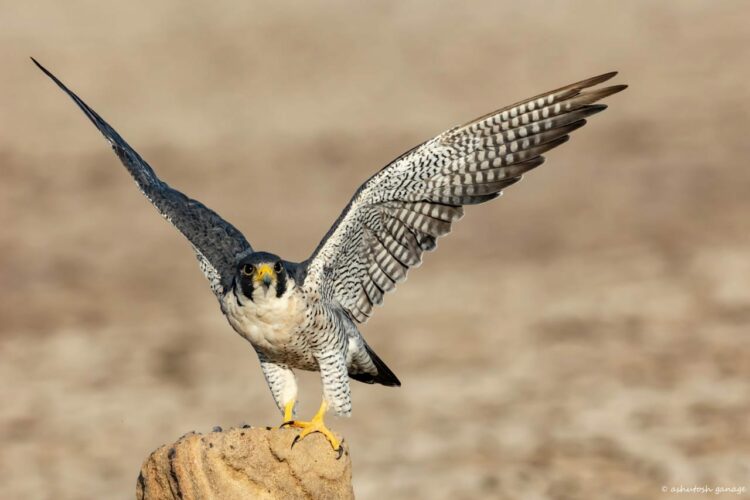
Falcons are renowned for their speed and aerial prowess, often striking fear into tinier birds that share their skies. However, nature has equipped some avian species with defenses or behaviors that make them less susceptible to falcon predation. These 15 birds have evolved strategies to evade or outmaneuver falcons, ensuring their survival in the face of a formidable predator. Let’s check them out.
Common Raven
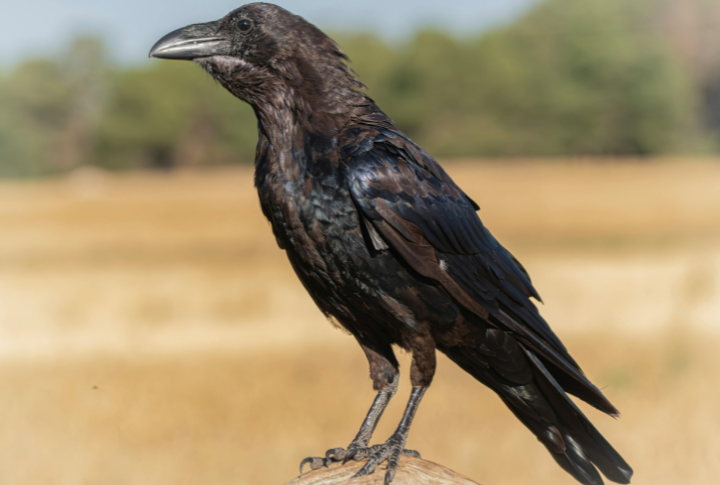
Renowned for their clever problem-solving abilities, these birds exhibit remarkable intelligence and adaptability. They often form close-knit social groups, enabling them to share information and evade predators like falcons through collective vigilance.
American Crow
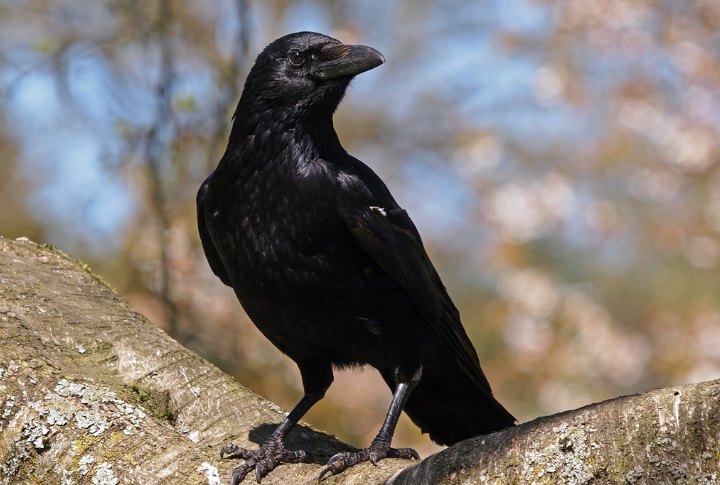
Distinguished by their intelligence, American Crows engage in complex social behaviors that aid their survival. Their loud and forceful calls serve as a form of communication, aiding in predator detection and evasion, including threats from falcons.
Great Horned Owl
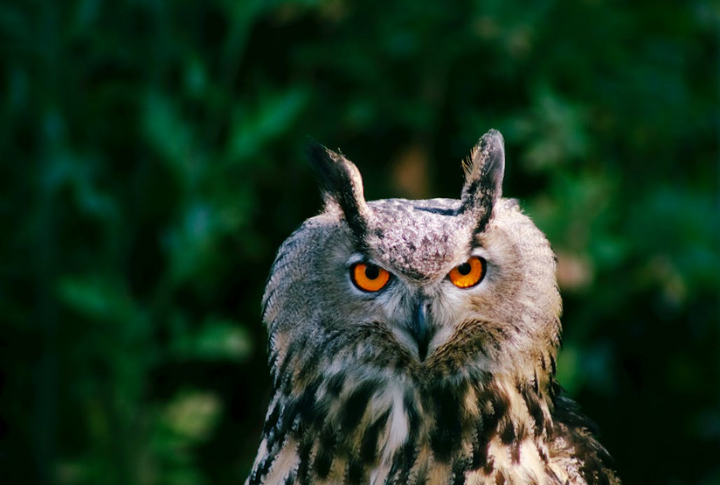
Nocturnal and solitary, Great Horned Owls are formidable predators with sharp talons and keen night vision. While they may encounter falcons infrequently due to differing active hours, they can defend themselves effectively if needed.
Bald Eagle
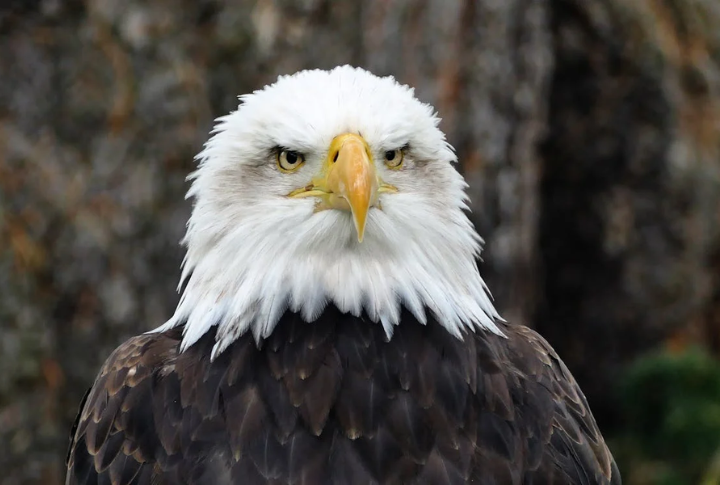
Bald eagles are majestic symbols of strength and are among North America’s largest birds of prey. While they typically do not target falcons, their imposing presence and territorial behavior can deter tinier predators like falcons from encroaching on their habitat.
Golden Eagle
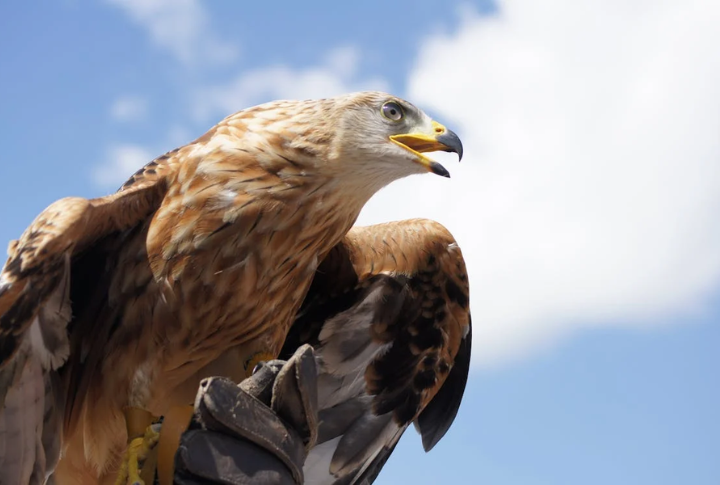
With their impressive size and powerful talons, Golden Eagles are apex predators capable of hunting various prey. They inhabit rugged landscapes where falcons may be less common, minimizing potential interactions between the two species.
Red-tailed Hawk
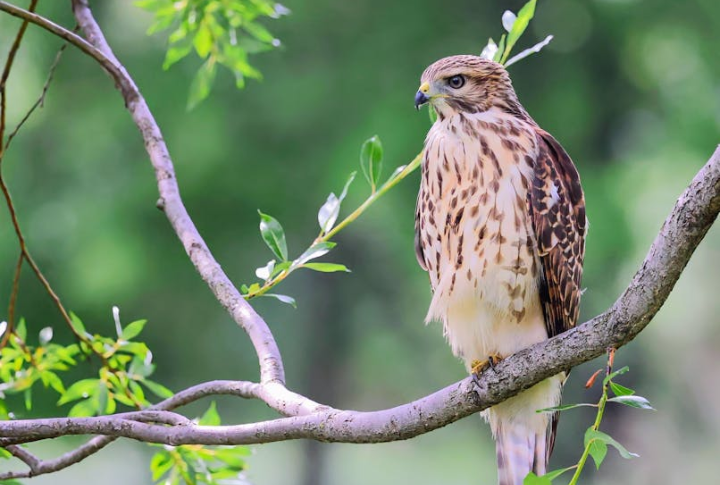
Renowned for their soaring flights and piercing gaze, Red-tailed Hawks possess keen eyesight that aids in detecting falcons from afar. Their ability to soar to great heights allows them to avoid conflicts with falcons.
Turkey Vulture
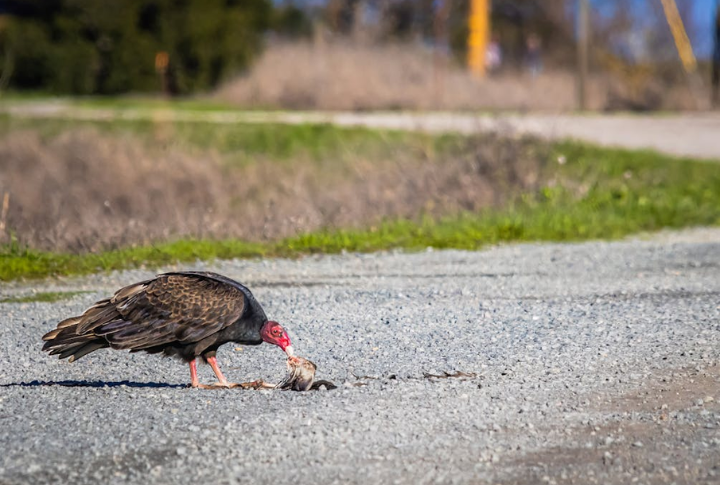
Turkey Vultures do not directly compete with falcons for live prey. Instead, they play a vital role as scavengers in the ecosystem. Because of their keen sense of smell, they can locate carrion, reducing the need to compete with falcons for food resources.
Osprey
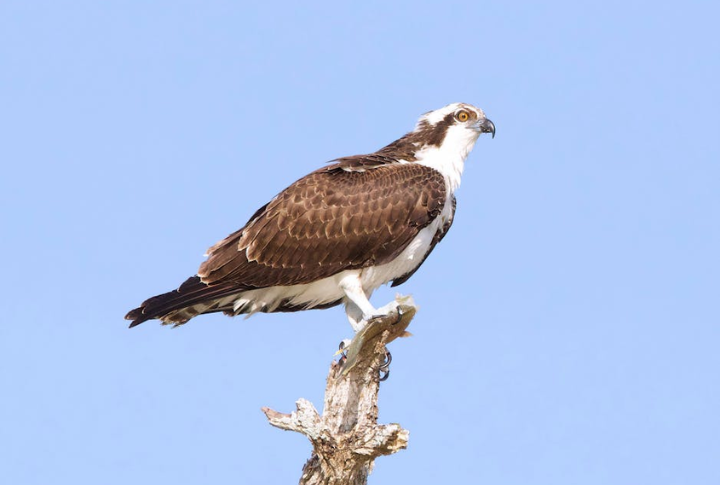
Specialized fish hunters, ospreys possess unique adaptations such as reversible outer toes and barbed talons that enable them to catch fish precisely. Their aquatic hunting habits reduce direct competition with falcons.
Northern Goshawk
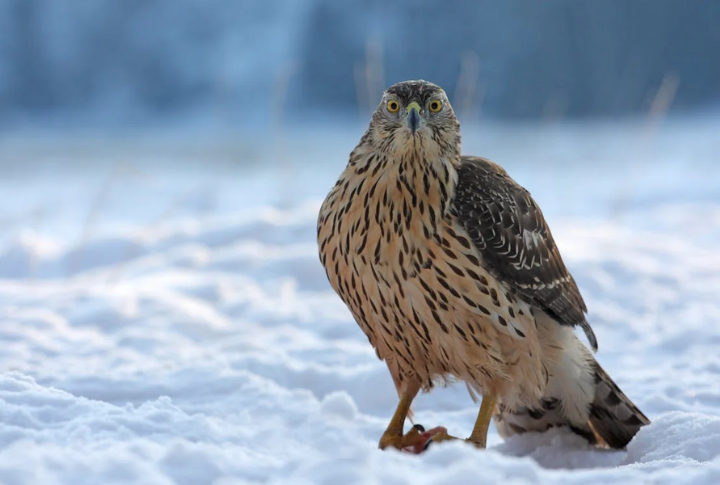
Agile and aggressive, Northern Goshawks are skilled hunters who can capture various prey, including other birds. With their stealthy hunting techniques and powerful flight, they are formidable adversaries for falcons.
Cooper’s Hawk
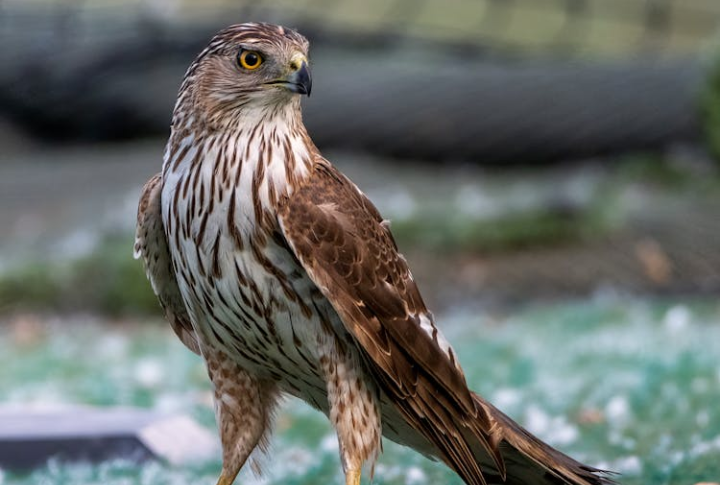
Known for their swift maneuvers and adeptness in navigating dense foliage, Cooper’s Hawks primarily prey on smaller birds. Their ability to defend themselves against falcons stems from their quick reflexes.
Sharp-shinned Hawk
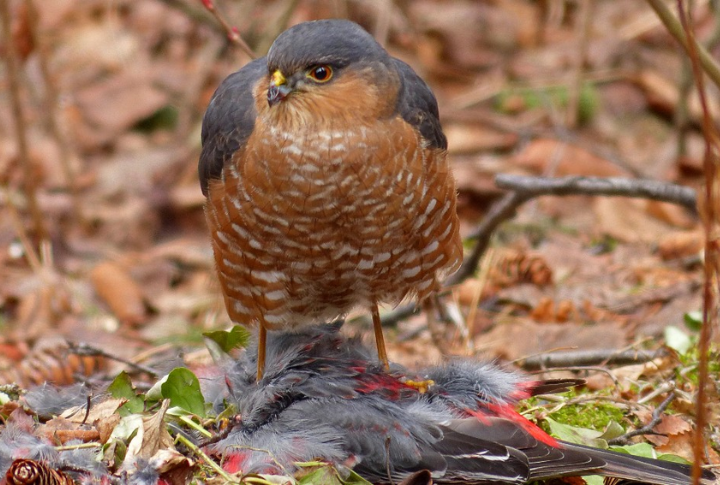
Possessing a similar hunting strategy to Cooper’s Hawks, Sharp-shinned Hawks are adept at capturing little birds. Their small size and agility make them challenging targets for falcons.
Merlin
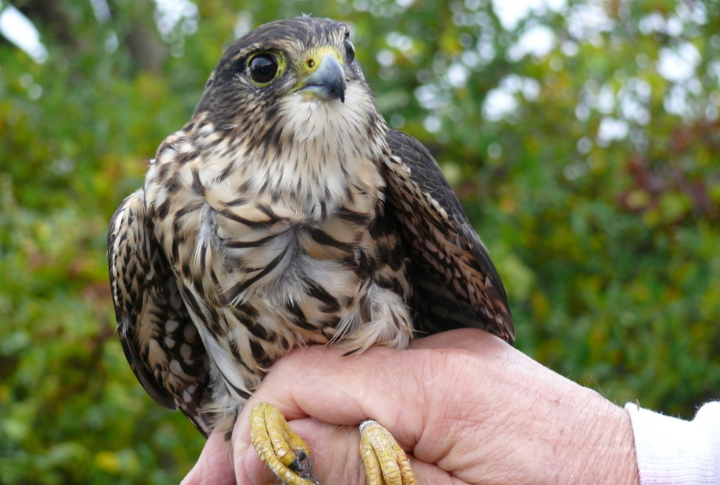
Merlins are little falcons characterized by their rapid flight and acrobatic hunting style. They primarily prey on smaller birds, and their speed allows them to avoid confrontations with larger predators.
Kestrel
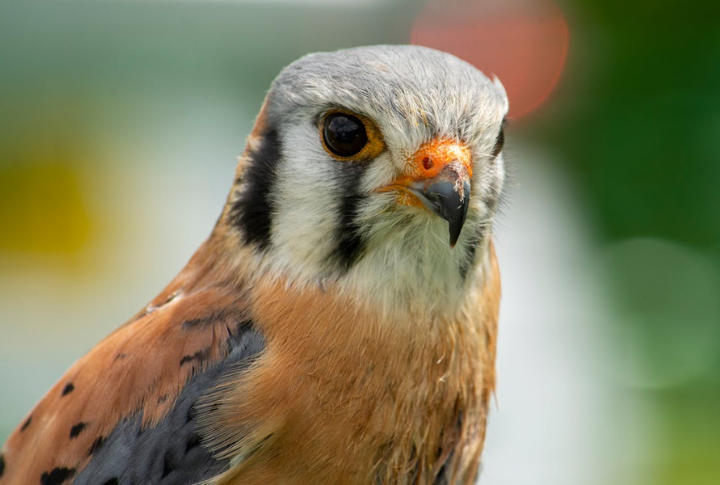
Despite being the smallest falcon in North America, American Kestrels are skilled hunters who primarily prey on insects, rodents, and tiny birds. Their compact size and agility enable them to effectively avoid larger predators.
American White Pelican
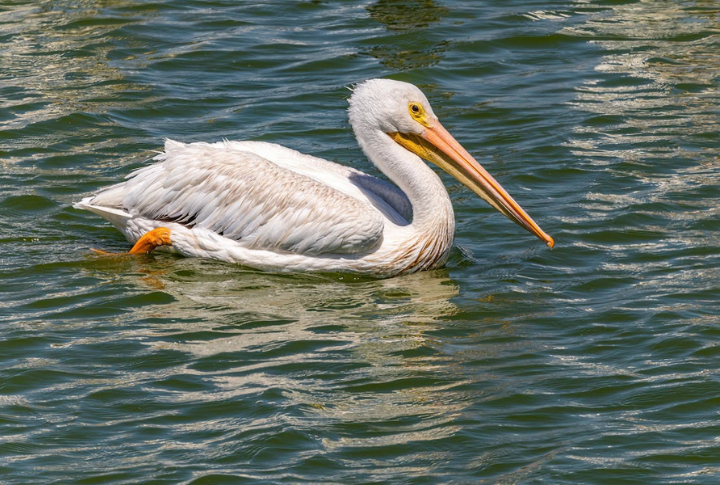
With a wingspan of about 9 feet, these large birds are not easy targets for falcons. Their feeding behavior, which often involves cooperative fishing in groups, provides them with added protection against aerial predators like falcons.
Common Merganser
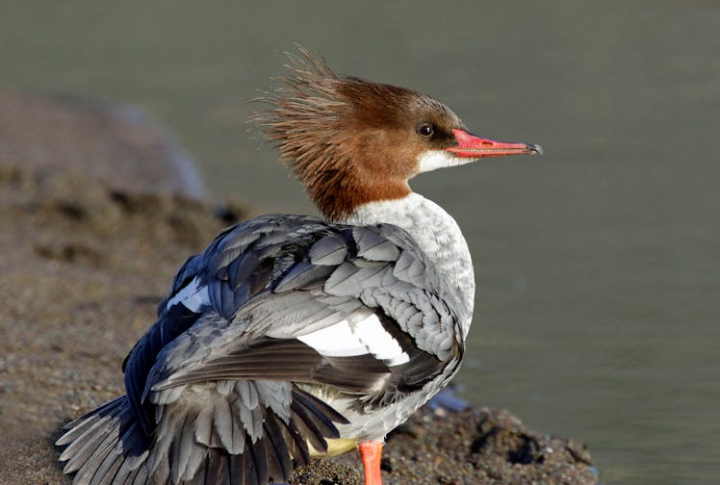
These diving ducks are built for life on the water, with long, serrated bills for catching fish. Their underwater agility and preference for aquatic habitats make them less likely to encounter falcons, which typically hunt in open skies.

Comments
Loading…